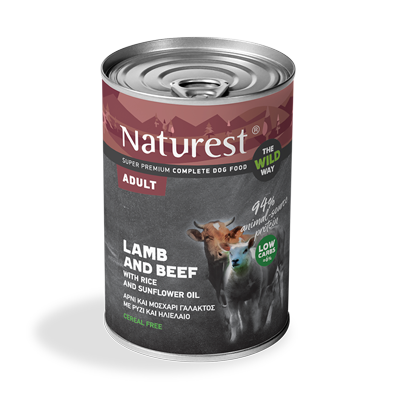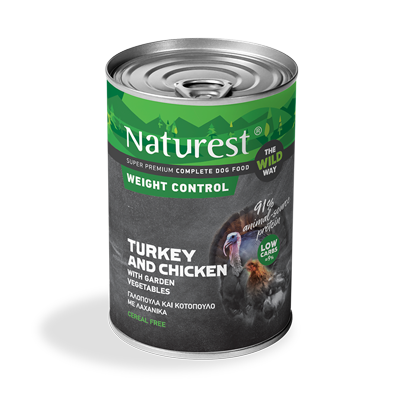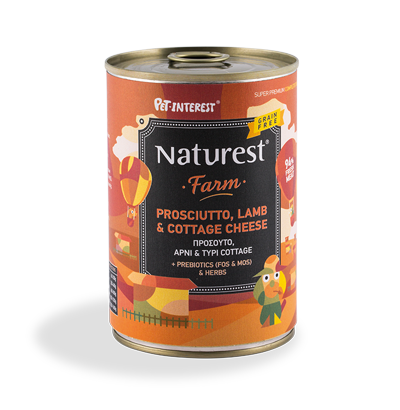
Herbs
Please see below the benefits of the herbs: Rosemary, Basil, Thyme, Marjoram, Chamomile, Dandelion, Laurel leaf, Parsley, Sage, Coriander, Dill.
Rosemary
- Antioxidant Properties: Rosemary contains antioxidants that help neutralize harmful free radicals in your dog's body, potentially reducing the risk of cell damage and certain diseases.
- Anti-inflammatory Effects: The anti-inflammatory properties of rosemary may help alleviate discomfort caused by conditions such as arthritis or joint pain in dogs.
- Improved Digestion: Rosemary can aid in digestion by stimulating the production of digestive enzymes, which may help prevent digestive issues and promote gastrointestinal health in dogs.
- Repellent Properties: Rosemary has natural insect-repellent properties, which can help keep fleas, ticks, and other pests away from your dog.
- Fresh Breath: Incorporating small amounts of rosemary into your dog's diet may help freshen their breath naturally.
- Mental Stimulation: Some studies suggest that the aroma of rosemary may have cognitive benefits, potentially enhancing mental alertness and concentration in dogs.
Basil
- Antioxidant Properties: Basil contains antioxidants such as flavonoids and polyphenols, which help neutralize harmful free radicals in your dog's body, potentially reducing the risk of cell damage and certain diseases.
- Anti-inflammatory Effects: The anti-inflammatory properties of basil may help alleviate discomfort caused by conditions such as arthritis or joint pain in dogs.
- Improved Digestion: Basil can aid in digestion by promoting the production of digestive enzymes, which may help prevent digestive issues and promote gastrointestinal health in dogs.
- Fresh Breath: Incorporating small amounts of basil into your dog's diet may help freshen their breath naturally.
- Immune System Support: Basil contains vitamins A and C, as well as other nutrients that can support your dog's immune system and overall health.
- Mental Stimulation: Some studies suggest that the aroma of basil may have cognitive benefits, potentially enhancing mental alertness and concentration in dogs.
Thyme
- Antioxidant Properties: Thyme contains antioxidants such as flavonoids, polyphenols, and vitamins (such as vitamin C), which help neutralize harmful free radicals in your dog's body. This can potentially reduce the risk of cell damage and certain diseases.
- Anti-inflammatory Effects: The anti-inflammatory properties of thyme may help alleviate discomfort caused by conditions such as arthritis or joint pain in dogs.
- Digestive Aid: Thyme can aid in digestion by promoting the production of digestive enzymes, which may help prevent digestive issues and promote gastrointestinal health in dogs.
- Respiratory Health: Thyme has been traditionally used to support respiratory health. It may help alleviate coughing or respiratory congestion in dogs, especially when used as part of natural remedies or treatments.
- Antimicrobial Properties: Thyme contains compounds that have antimicrobial properties, which may help fight off certain bacterial or fungal infections in dogs.
- Calming Effects: Some dogs may find the aroma of thyme calming. It can be used in aromatherapy or incorporated into their environment to promote relaxation and reduce stress levels.
Marjoram
- Digestive Aid: Marjoram can help promote healthy digestion in dogs by stimulating the production of digestive enzymes. This can aid in the breakdown of food and absorption of nutrients, potentially preventing digestive issues such as bloating, gas, and upset stomach
- Anti-inflammatory Properties: Marjoram contains compounds with anti-inflammatory properties that may help alleviate discomfort caused by conditions such as arthritis or joint pain in dogs.
- Antioxidant Benefits: Marjoram is rich in antioxidants, including vitamins A and C, which help neutralize harmful free radicals in your dog's body. This can potentially reduce the risk of cell damage and certain diseases.
- Respiratory Health: Marjoram has been traditionally used to support respiratory health in humans, and it may offer similar benefits to dogs. It may help alleviate coughing or respiratory congestion, especially when used as part of natural remedies or treatments.
- Calming Effects: The aroma of marjoram is believed to have calming effects, which can help reduce stress and anxiety levels in dogs. It can be used in aromatherapy or incorporated into their environment to promote relaxation.
- Antibacterial Properties: Marjoram contains compounds with antibacterial properties, which may help fight off certain bacterial infections in dogs.
Chamomile
- Calming Effects: Chamomile is well-known for its calming properties. It can help soothe nervousness, anxiety, and stress in dogs. Chamomile is often used in herbal remedies to promote relaxation and ease mild behavioral issues.
- Gastrointestinal Health: Chamomile can aid in digestive health by soothing the stomach and alleviating gastrointestinal discomfort. It may help reduce symptoms of indigestion, gas, bloating, and mild stomach upset in dogs.
- Anti-inflammatory Properties: Chamomile contains compounds with anti-inflammatory properties, which may help alleviate discomfort associated with conditions such as arthritis, joint pain, and skin irritations in dogs.
- Antioxidant Benefits: Chamomile contains antioxidants such as flavonoids and terpenoids, which help neutralize harmful free radicals in your dog's body. This can potentially reduce the risk of cell damage and certain diseases.
- Skin and Coat Health: Chamomile can be used topically to soothe irritated skin and alleviate itching or inflammation caused by allergies, insect bites, or minor skin irritations. Chamomile shampoos or rinses may help improve coat condition and promote healthy skin in dogs.
- Immune System Support: Chamomile may help support the immune system and overall health in dogs due to its antioxidant properties and potential ability to reduce inflammation.
Dandelion
- Liver Support: Dandelion is known for its ability to support liver function. It helps in the detoxification process by aiding the liver in eliminating toxins and waste products from the body. This can be particularly beneficial for dogs with liver issues or those exposed to environmental toxins.
- Digestive Aid: Dandelion contains prebiotic fibers that promote the growth of beneficial gut bacteria, which aids in digestion. It can help alleviate digestive issues such as constipation, bloating, and diarrhea in dogs.
- Anti-inflammatory Properties: Dandelion has natural anti-inflammatory properties that can help reduce inflammation and alleviate discomfort associated with conditions like arthritis and joint pain in dogs.
- Diuretic Effects: Dandelion acts as a gentle diuretic, promoting the elimination of excess fluids from the body through urine. This can be beneficial for dogs with mild fluid retention or urinary issues, helping to maintain proper fluid balance.
- Nutritional Content: Dandelion is rich in vitamins and minerals, including vitamins A, C, and K, as well as calcium, iron, and potassium. Adding dandelion to your dog's diet can provide essential nutrients that support overall health and well-being.
- Immune System Support: The vitamins and antioxidants found in dandelion can help boost the immune system and protect against oxidative stress and cellular damage in dogs.
Laurel leaf
- Digestive Aid: Laurel leaf can aid in digestion and help alleviate digestive discomfort in dogs. It contains compounds that stimulate the production of digestive enzymes, which can promote healthy digestion and reduce symptoms of indigestion, gas, and bloating.
- Anti-inflammatory Properties: Laurel leaf contains phytonutrients and volatile oils that have anti-inflammatory properties. It may help reduce inflammation associated with conditions such as arthritis or inflammatory bowel disease in dogs.
- Respiratory Health: The aromatic properties of laurel leaf can help support respiratory health in dogs. Inhaling the steam from boiled laurel leaves may help clear nasal passages and ease symptoms of respiratory congestion or coughing.
- Antibacterial and Antifungal Effects: Laurel leaf possesses antibacterial and antifungal properties, which can help fight off certain bacterial and fungal infections in dogs. It may be particularly useful in treating minor skin infections or irritations.
- Calming Effects: The aroma of laurel leaf is believed to have calming effects on dogs. It may help reduce stress and anxiety levels, promoting relaxation and a sense of well-being.
- Antioxidant Benefits: Laurel leaf contains antioxidants that help neutralize harmful free radicals in the body, potentially reducing the risk of cell damage and certain diseases in dogs.
Parsley
- Fresh Breath: Parsley is often used as a natural breath freshener for dogs. Chewing on fresh parsley leaves can help neutralize odors in the mouth and improve your dog's breath.
- Rich in Nutrients: Parsley is a good source of vitamins A, C, and K, as well as folate and iron. These nutrients can support your dog's overall health and well-being.
- Anti-inflammatory Properties: Parsley contains antioxidants and anti-inflammatory compounds that may help reduce inflammation in dogs. This can be particularly beneficial for dogs with arthritis or other inflammatory conditions.
- Urinary Health: Parsley is a natural diuretic, which means it can help increase urine production and promote the elimination of toxins from the body. It may also help prevent urinary tract infections and support urinary health in dogs.
- Digestive Aid: Parsley contains fiber, which can help regulate bowel movements and promote healthy digestion in dogs. It may also help alleviate symptoms of gastrointestinal upset, such as gas and bloating.
- Immune System Support: The vitamins and antioxidants found in parsley can help boost your dog's immune system and protect against illness and disease.
Sage
- Anti-inflammatory Properties: Sage contains compounds with anti-inflammatory properties, which may help alleviate discomfort associated with conditions such as arthritis or joint pain in dogs.
- Antioxidant Benefits: Sage is rich in antioxidants, including flavonoids and phenolic acids, which help neutralize harmful free radicals in your dog's body. This can potentially reduce the risk of cell damage and certain diseases.
- Oral Health: Sage has natural antimicrobial properties that can help inhibit the growth of bacteria in the mouth. Chewing on fresh sage leaves or using sage-infused water as a mouth rinse may help improve oral hygiene and reduce the risk of dental problems in dogs.
- Digestive Aid: Sage can aid in digestion by stimulating the production of digestive enzymes, which may help prevent digestive issues and promote gastrointestinal health in dogs.
- Respiratory Health: Sage has been traditionally used to support respiratory health. It may help alleviate symptoms of coughing, congestion, and respiratory infections in dogs when used as part of natural remedies or treatments.
- Calming Effects: Some dogs may find the aroma of sage calming. It can be used in aromatherapy or incorporated into their environment to promote relaxation and reduce stress levels.
Coriander
- Rich in Nutrients: Coriander is rich in vitamins A, C, and K, as well as minerals such as potassium, calcium, and magnesium. These nutrients can support your dog's overall health and well-being.
- Digestive Aid: Coriander contains dietary fiber, which can help regulate bowel movements and promote healthy digestion in dogs. It may also help alleviate symptoms of gastrointestinal upset, such as gas and bloating.
- Anti-inflammatory Properties: Coriander contains antioxidants and anti-inflammatory compounds that may help reduce inflammation in dogs. This can be particularly beneficial for dogs with arthritis or other inflammatory conditions.
- Oral Health: Coriander has natural antimicrobial properties that can help inhibit the growth of bacteria in the mouth. Chewing on fresh coriander leaves or using coriander-infused water as a mouth rinse may help improve oral hygiene and reduce the risk of dental problems in dogs.
- Immune System Support: The vitamins and antioxidants found in coriander can help boost your dog's immune system and protect against illness and disease.
- Antibacterial Effects: Coriander contains compounds that have antibacterial properties, which may help fight off certain bacterial infections in dogs.
Dill
- Digestive Aid: Dill contains compounds that can aid in digestion by stimulating the production of digestive enzymes. This may help prevent digestive issues such as bloating, gas, and upset stomach in dogs.
- Antioxidant Properties: Dill is rich in antioxidants, including flavonoids and polyphenols, which help neutralize harmful free radicals in your dog's body. This can potentially reduce the risk of cell damage and certain diseases.
- Anti-inflammatory Effects: The anti-inflammatory properties of dill may help alleviate discomfort caused by conditions such as arthritis or joint pain in dogs.
- Fresh Breath: Dill is often used as a natural breath freshener for dogs. Chewing on fresh dill leaves can help neutralize odors in the mouth and improve your dog's breath.
- Calming Effects: Some dogs may find the aroma of dill calming. It can be used in aromatherapy or incorporated into their environment to promote relaxation and reduce stress levels.
- Nutritional Content: Dill contains vitamins and minerals that can support your dog's overall health and well-being. It is a good source of vitamin C, vitamin A, calcium, and iron.
Please see below the benefits of the herbs: Rosemary, Basil, Thyme, Marjoram, Chamomile, Dandelion, Laurel leaf, Parsley, Sage, Coriander, Dill.
Rosemary
- Antioxidant Properties: Rosemary contains antioxidants that help neutralize harmful free radicals in your dog's body, potentially reducing the risk of cell damage and certain diseases.
- Anti-inflammatory Effects: The anti-inflammatory properties of rosemary may help alleviate discomfort caused by conditions such as arthritis or joint pain in dogs.
- Improved Digestion: Rosemary can aid in digestion by stimulating the production of digestive enzymes, which may help prevent digestive issues and promote gastrointestinal health in dogs.
- Repellent Properties: Rosemary has natural insect-repellent properties, which can help keep fleas, ticks, and other pests away from your dog.
- Fresh Breath: Incorporating small amounts of rosemary into your dog's diet may help freshen their breath naturally.
- Mental Stimulation: Some studies suggest that the aroma of rosemary may have cognitive benefits, potentially enhancing mental alertness and concentration in dogs.
Basil
- Antioxidant Properties: Basil contains antioxidants such as flavonoids and polyphenols, which help neutralize harmful free radicals in your dog's body, potentially reducing the risk of cell damage and certain diseases.
- Anti-inflammatory Effects: The anti-inflammatory properties of basil may help alleviate discomfort caused by conditions such as arthritis or joint pain in dogs.
- Improved Digestion: Basil can aid in digestion by promoting the production of digestive enzymes, which may help prevent digestive issues and promote gastrointestinal health in dogs.
- Fresh Breath: Incorporating small amounts of basil into your dog's diet may help freshen their breath naturally.
- Immune System Support: Basil contains vitamins A and C, as well as other nutrients that can support your dog's immune system and overall health.
- Mental Stimulation: Some studies suggest that the aroma of basil may have cognitive benefits, potentially enhancing mental alertness and concentration in dogs.
Thyme
- Antioxidant Properties: Thyme contains antioxidants such as flavonoids, polyphenols, and vitamins (such as vitamin C), which help neutralize harmful free radicals in your dog's body. This can potentially reduce the risk of cell damage and certain diseases.
- Anti-inflammatory Effects: The anti-inflammatory properties of thyme may help alleviate discomfort caused by conditions such as arthritis or joint pain in dogs.
- Digestive Aid: Thyme can aid in digestion by promoting the production of digestive enzymes, which may help prevent digestive issues and promote gastrointestinal health in dogs.
- Respiratory Health: Thyme has been traditionally used to support respiratory health. It may help alleviate coughing or respiratory congestion in dogs, especially when used as part of natural remedies or treatments.
- Antimicrobial Properties: Thyme contains compounds that have antimicrobial properties, which may help fight off certain bacterial or fungal infections in dogs.
- Calming Effects: Some dogs may find the aroma of thyme calming. It can be used in aromatherapy or incorporated into their environment to promote relaxation and reduce stress levels.
Marjoram
- Digestive Aid: Marjoram can help promote healthy digestion in dogs by stimulating the production of digestive enzymes. This can aid in the breakdown of food and absorption of nutrients, potentially preventing digestive issues such as bloating, gas, and upset stomach
- Anti-inflammatory Properties: Marjoram contains compounds with anti-inflammatory properties that may help alleviate discomfort caused by conditions such as arthritis or joint pain in dogs.
- Antioxidant Benefits: Marjoram is rich in antioxidants, including vitamins A and C, which help neutralize harmful free radicals in your dog's body. This can potentially reduce the risk of cell damage and certain diseases.
- Respiratory Health: Marjoram has been traditionally used to support respiratory health in humans, and it may offer similar benefits to dogs. It may help alleviate coughing or respiratory congestion, especially when used as part of natural remedies or treatments.
- Calming Effects: The aroma of marjoram is believed to have calming effects, which can help reduce stress and anxiety levels in dogs. It can be used in aromatherapy or incorporated into their environment to promote relaxation.
- Antibacterial Properties: Marjoram contains compounds with antibacterial properties, which may help fight off certain bacterial infections in dogs.
Chamomile
- Calming Effects: Chamomile is well-known for its calming properties. It can help soothe nervousness, anxiety, and stress in dogs. Chamomile is often used in herbal remedies to promote relaxation and ease mild behavioral issues.
- Gastrointestinal Health: Chamomile can aid in digestive health by soothing the stomach and alleviating gastrointestinal discomfort. It may help reduce symptoms of indigestion, gas, bloating, and mild stomach upset in dogs.
- Anti-inflammatory Properties: Chamomile contains compounds with anti-inflammatory properties, which may help alleviate discomfort associated with conditions such as arthritis, joint pain, and skin irritations in dogs.
- Antioxidant Benefits: Chamomile contains antioxidants such as flavonoids and terpenoids, which help neutralize harmful free radicals in your dog's body. This can potentially reduce the risk of cell damage and certain diseases.
- Skin and Coat Health: Chamomile can be used topically to soothe irritated skin and alleviate itching or inflammation caused by allergies, insect bites, or minor skin irritations. Chamomile shampoos or rinses may help improve coat condition and promote healthy skin in dogs.
- Immune System Support: Chamomile may help support the immune system and overall health in dogs due to its antioxidant properties and potential ability to reduce inflammation.
Dandelion
- Liver Support: Dandelion is known for its ability to support liver function. It helps in the detoxification process by aiding the liver in eliminating toxins and waste products from the body. This can be particularly beneficial for dogs with liver issues or those exposed to environmental toxins.
- Digestive Aid: Dandelion contains prebiotic fibers that promote the growth of beneficial gut bacteria, which aids in digestion. It can help alleviate digestive issues such as constipation, bloating, and diarrhea in dogs.
- Anti-inflammatory Properties: Dandelion has natural anti-inflammatory properties that can help reduce inflammation and alleviate discomfort associated with conditions like arthritis and joint pain in dogs.
- Diuretic Effects: Dandelion acts as a gentle diuretic, promoting the elimination of excess fluids from the body through urine. This can be beneficial for dogs with mild fluid retention or urinary issues, helping to maintain proper fluid balance.
- Nutritional Content: Dandelion is rich in vitamins and minerals, including vitamins A, C, and K, as well as calcium, iron, and potassium. Adding dandelion to your dog's diet can provide essential nutrients that support overall health and well-being.
- Immune System Support: The vitamins and antioxidants found in dandelion can help boost the immune system and protect against oxidative stress and cellular damage in dogs.
Laurel leaf
- Digestive Aid: Laurel leaf can aid in digestion and help alleviate digestive discomfort in dogs. It contains compounds that stimulate the production of digestive enzymes, which can promote healthy digestion and reduce symptoms of indigestion, gas, and bloating.
- Anti-inflammatory Properties: Laurel leaf contains phytonutrients and volatile oils that have anti-inflammatory properties. It may help reduce inflammation associated with conditions such as arthritis or inflammatory bowel disease in dogs.
- Respiratory Health: The aromatic properties of laurel leaf can help support respiratory health in dogs. Inhaling the steam from boiled laurel leaves may help clear nasal passages and ease symptoms of respiratory congestion or coughing.
- Antibacterial and Antifungal Effects: Laurel leaf possesses antibacterial and antifungal properties, which can help fight off certain bacterial and fungal infections in dogs. It may be particularly useful in treating minor skin infections or irritations.
- Calming Effects: The aroma of laurel leaf is believed to have calming effects on dogs. It may help reduce stress and anxiety levels, promoting relaxation and a sense of well-being.
- Antioxidant Benefits: Laurel leaf contains antioxidants that help neutralize harmful free radicals in the body, potentially reducing the risk of cell damage and certain diseases in dogs.
Parsley
- Fresh Breath: Parsley is often used as a natural breath freshener for dogs. Chewing on fresh parsley leaves can help neutralize odors in the mouth and improve your dog's breath.
- Rich in Nutrients: Parsley is a good source of vitamins A, C, and K, as well as folate and iron. These nutrients can support your dog's overall health and well-being.
- Anti-inflammatory Properties: Parsley contains antioxidants and anti-inflammatory compounds that may help reduce inflammation in dogs. This can be particularly beneficial for dogs with arthritis or other inflammatory conditions.
- Urinary Health: Parsley is a natural diuretic, which means it can help increase urine production and promote the elimination of toxins from the body. It may also help prevent urinary tract infections and support urinary health in dogs.
- Digestive Aid: Parsley contains fiber, which can help regulate bowel movements and promote healthy digestion in dogs. It may also help alleviate symptoms of gastrointestinal upset, such as gas and bloating.
- Immune System Support: The vitamins and antioxidants found in parsley can help boost your dog's immune system and protect against illness and disease.
Sage
- Anti-inflammatory Properties: Sage contains compounds with anti-inflammatory properties, which may help alleviate discomfort associated with conditions such as arthritis or joint pain in dogs.
- Antioxidant Benefits: Sage is rich in antioxidants, including flavonoids and phenolic acids, which help neutralize harmful free radicals in your dog's body. This can potentially reduce the risk of cell damage and certain diseases.
- Oral Health: Sage has natural antimicrobial properties that can help inhibit the growth of bacteria in the mouth. Chewing on fresh sage leaves or using sage-infused water as a mouth rinse may help improve oral hygiene and reduce the risk of dental problems in dogs.
- Digestive Aid: Sage can aid in digestion by stimulating the production of digestive enzymes, which may help prevent digestive issues and promote gastrointestinal health in dogs.
- Respiratory Health: Sage has been traditionally used to support respiratory health. It may help alleviate symptoms of coughing, congestion, and respiratory infections in dogs when used as part of natural remedies or treatments.
- Calming Effects: Some dogs may find the aroma of sage calming. It can be used in aromatherapy or incorporated into their environment to promote relaxation and reduce stress levels.
Coriander
- Rich in Nutrients: Coriander is rich in vitamins A, C, and K, as well as minerals such as potassium, calcium, and magnesium. These nutrients can support your dog's overall health and well-being.
- Digestive Aid: Coriander contains dietary fiber, which can help regulate bowel movements and promote healthy digestion in dogs. It may also help alleviate symptoms of gastrointestinal upset, such as gas and bloating.
- Anti-inflammatory Properties: Coriander contains antioxidants and anti-inflammatory compounds that may help reduce inflammation in dogs. This can be particularly beneficial for dogs with arthritis or other inflammatory conditions.
- Oral Health: Coriander has natural antimicrobial properties that can help inhibit the growth of bacteria in the mouth. Chewing on fresh coriander leaves or using coriander-infused water as a mouth rinse may help improve oral hygiene and reduce the risk of dental problems in dogs.
- Immune System Support: The vitamins and antioxidants found in coriander can help boost your dog's immune system and protect against illness and disease.
- Antibacterial Effects: Coriander contains compounds that have antibacterial properties, which may help fight off certain bacterial infections in dogs.
Dill
- Digestive Aid: Dill contains compounds that can aid in digestion by stimulating the production of digestive enzymes. This may help prevent digestive issues such as bloating, gas, and upset stomach in dogs.
- Antioxidant Properties: Dill is rich in antioxidants, including flavonoids and polyphenols, which help neutralize harmful free radicals in your dog's body. This can potentially reduce the risk of cell damage and certain diseases.
- Anti-inflammatory Effects: The anti-inflammatory properties of dill may help alleviate discomfort caused by conditions such as arthritis or joint pain in dogs.
- Fresh Breath: Dill is often used as a natural breath freshener for dogs. Chewing on fresh dill leaves can help neutralize odors in the mouth and improve your dog's breath.
- Calming Effects: Some dogs may find the aroma of dill calming. It can be used in aromatherapy or incorporated into their environment to promote relaxation and reduce stress levels.
- Nutritional Content: Dill contains vitamins and minerals that can support your dog's overall health and well-being. It is a good source of vitamin C, vitamin A, calcium, and iron.



